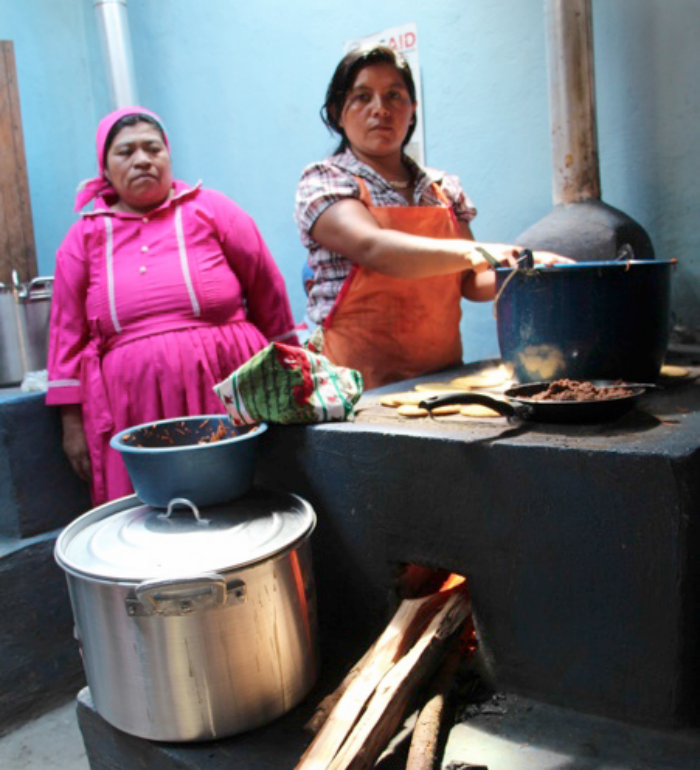
As the Western Hemisphere’s two largest democracies and two largest economies, the United States and Brazil now collaborate as partners to help other countries in need. USAID/Brazil, the first Strategic Partnership Mission to foster trilateral cooperation, has partnered with the government of Brazil to leverage knowledge, expertise, and resources in support of third country development efforts. Trilateral cooperation serves as a mechanism to expand a country’s development accomplishments into third countries, strengthen institutional capacity of partner countries, and optimize regional and cultural affinities.
Working towards common development goals, the two countries signed an agreement in 2010 to enhance joint activities and expand technical cooperation in Africa, Latin America, and the Caribbean. The work focuses on economic development, education, food security, women’s issues, health care, and social inclusion. USAID works closely with the Brazilian Cooperation Agency (ABC) of Brazil’s Ministry of External Relations; the Brazilian Agricultural Research Corporation (EMBRAPA); the Brazilian Fund for Educational Development (FNDE), an entity under Brazil’s Ministry of Education; and a Brazilian civil society network focused on clean energy - Renewable Energy Non-Governmental Organization Network (RENOVE).
In Mozambique, Honduras, and Haiti, USAID and ABC collaborate to reduce poverty, hunger, and malnutrition through improvements to agricultural productivity and food security. These activities are aligned with Feed the Future, a U.S. global hunger and food security initiative.
Agricultural Productivity:
In Mozambique, USAID and our partners, led by EMBRAPA, train small farmers to adopt new crop management practices, plant better disease-resistance crop varieties, and apply new environmentally sensitive irrigation technologies. The current, first phase of this partnership helps strengthen the teaching capabilities and institutional capacity of Mozambique’s Agriculture Research Department (IIAM). The second phase of trilateral cooperation activities in Mozambique foresees a participatory and partnership approach to foster awareness, availability and adoption of horticulture best practices and technologies by early adopters (smallholder farmers associations), government extension workers, and the private sector.
In Honduras, USAID, ABC and EMBRAPA work with the Luis Landa School of Agriculture to provide technical assistance to farmers to better utilize technology and agricultural techniques. Important commercial crops, such as cashew nuts, sesame seeds, and honey were introduced to farmers to increase agricultural productivity in the poorest farming regions. The key value-added of trilateral cooperation in this context is the decades of EMBRAPA research that have led to successful, climate change resistant varieties of these important crops that were introduced in Honduras. Collaboration with the Honduran Ministry of Agriculture (SAG) and its Agriculture Research Center (DICTA) led to the development of country’s first modern laboratory for developing and propagating these varieties, and improved training for small farmers in the cultivation of these crops. In collaboration with the renewable energy component some remote farming communities have received solar-powered machines, such as solar dryers, to increase the agricultural production capacity of Honduran coffee farmers.
In Haiti, we focus on strengthening the country’s capacity in research and development of viable marketing systems. The partnership aims to increase the capacity of the Ministry of Agriculture, Natural Resources, and Rural Development to propagate improved planting material to increase agricultural production, improve nutrition, and reduce poverty. In addition, we support the Rural Centers for Sustainable Development to develop, test, and disseminate improved technologies for smallholder farmers.
Renewable Energy:
In Honduras, the partnership aims to identify, assess, and facilitate investments in renewable energy that help poor, rural households improve income, health, and nutrition. Solar dryers have been introduced to hasten the process of drying coffee beans, creating a faster return on investment. The construction of eco-stoves at home, schools, and community centers reduce smoke inhalation that affect mostly women and young children. Besides providing electricity to schools and community centers, solar panels are used to recharge community members’ cell phones for a nominal fee. The proceeds are used to maintain the system as well as support school food programs. In one community, during a two-month period, 400 cell phones were charged.
Nutrition:
Brazil assists Mozambique’s Ministry of Education to implement its National Program on School Feeding (PRONAE), which will improve the health and nutrition of school-aged children. To achieve sustainability, the program supported the Ministry’s human and institutional capacity to plan, implement, and monitor the program. In support of farmers from the Agricultural Development component of cooperation, PRONAE works with local farmers to incorporate locally grown food into the school feeding program.
Women’s and Children’s Health:
As open-fire stoves can cause grave health conditions, particularly for women and young children, our trilateral partnership introduced eco-stoves in western Honduras. These stoves, placed in homes, schools, and community centers, are more efficient, clean burning, and reduce household air pollution. To assure sustainability, community members are trained to build and install eco-stoves. To date, more than 10,000 households and 50,000 Honduran partners have benefitted from the efficiency of the trilateral cooperation eco-stoves.
Citizen Security:
USAID/Brazil and the State of Rio de Janeiro Security Secretariat formed a trilateral cooperation partnership to increase citizen security in third countries. This partnership draws upon the Secretariat’s expertise, experience and proven models for transforming violence-prone neighborhoods without public services into peaceful communities with schools, healthcare, and job opportunities.








Comment
Make a general inquiry or suggest an improvement.